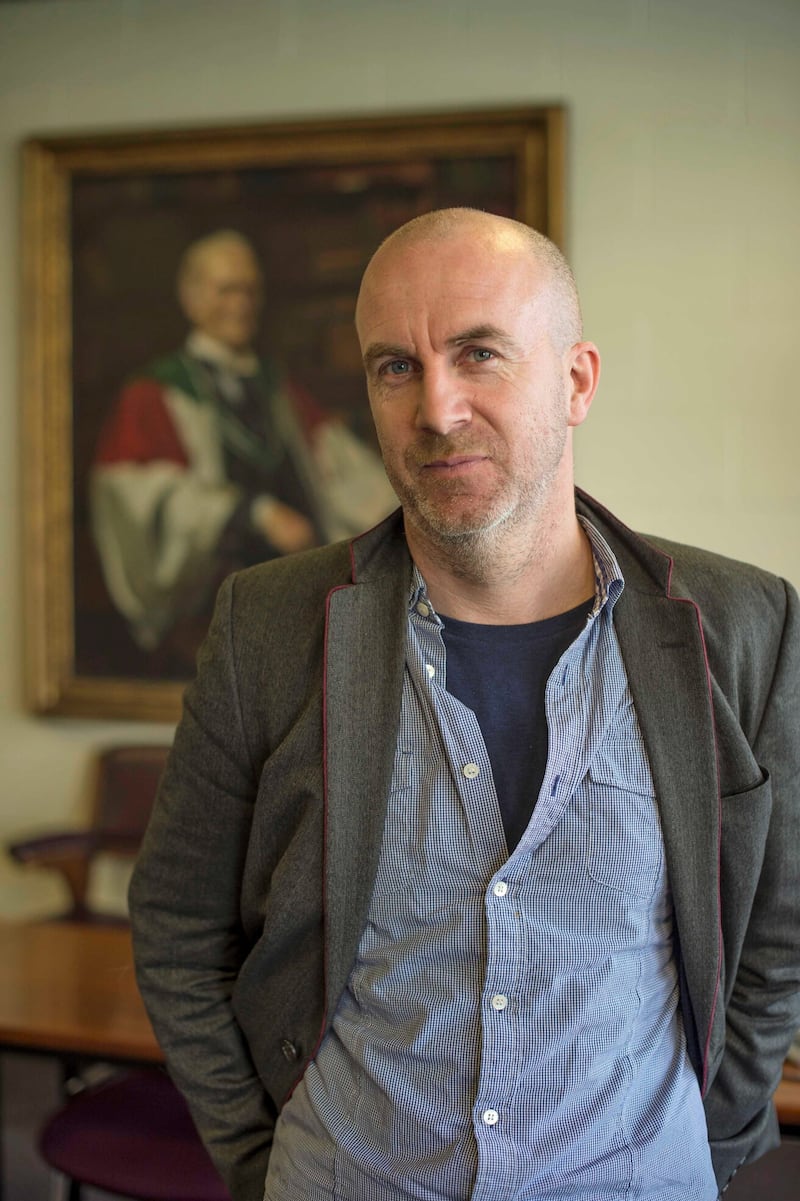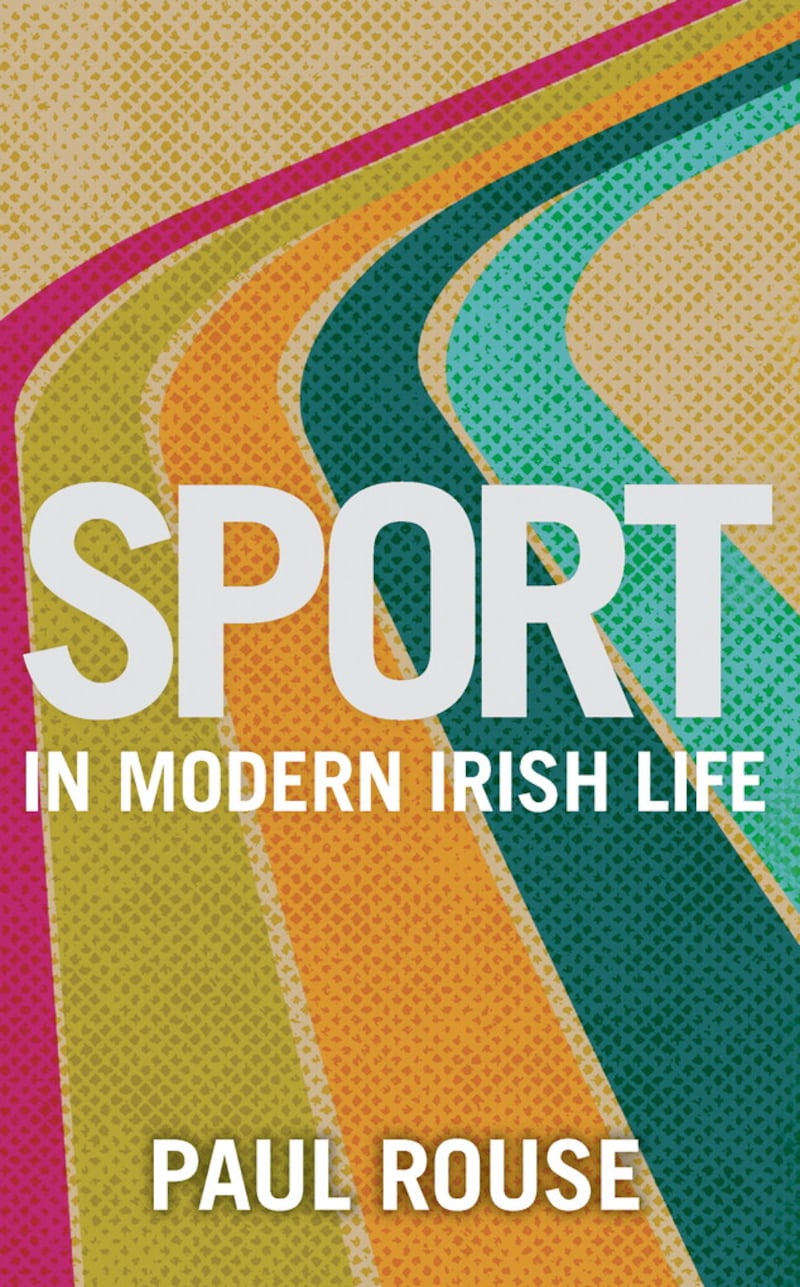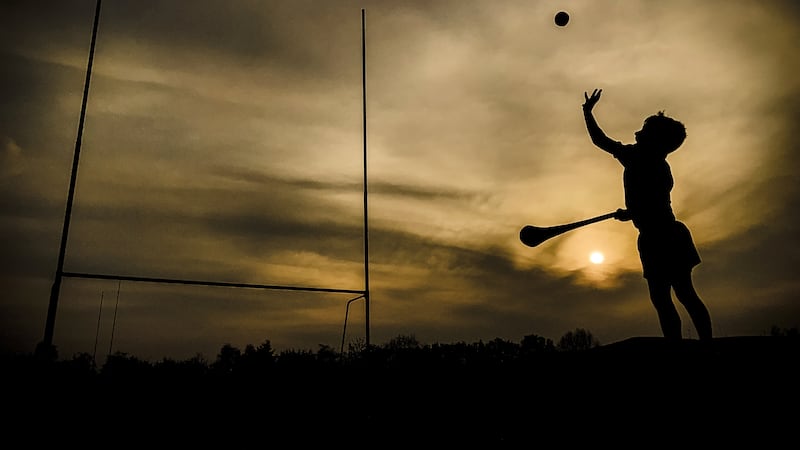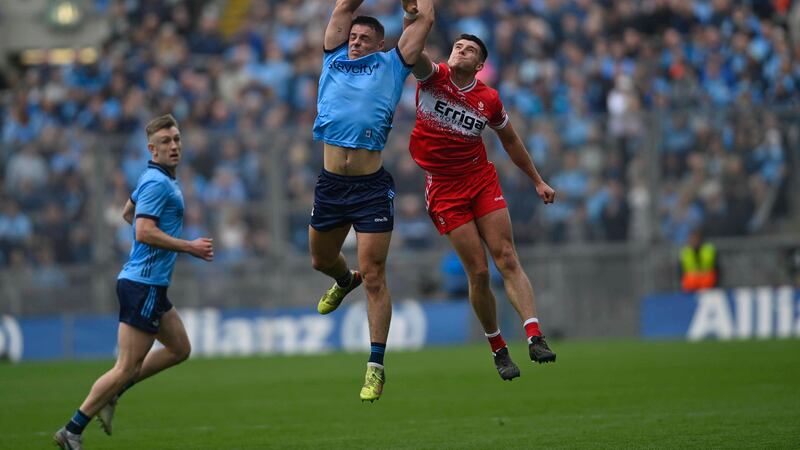ON the discount rack, Paul Rouse spies a pair of football boots.
He’s in his 50s. Playing is a pursuit of the past tense. But the boy in him lifts them, examines them. Takes in their perfection. And how needless the purchase would be.
“But then I make a mistake – I smell the boots,” the author writes in an opening salvo of his new book, Sport in Modern Irish Life.
They end up on his feet when he hears the voice of an old adversary from his playing days.
“We went at it fairly hard and heavy for years. He met me buying the boots in the shop, saw me trying them on, and we had a great laugh. His sons came over,” he says.
“There’s a bit of a poignancy and a regret in it. Once you finish playing, nothing can substitute it.
“You can train all you want, watch all you want, write all you want, but nothing beats pulling on boots, kicking a ball, hitting a ball with a stick, running into lads, winning and losing.
“Nothing beats that, nothing replaces it. So there’s a lament for what’s gone, but it’s also the fact that over time there’s a softening of edges and that actually you can probably get on with someone that you really didn’t think that was possible with previously.
“And how time reminds you we’re all in it together on some level.”
He didn’t buy the boots in the end. Wanted to, but his lips wouldn’t betray his limbs when he was at the counter.
Rouse is uniquely positioned to write such a book. A former footballer and hurler with Tullamore. Briefly Offaly manager five years ago, pulling them out of a mid-season hole. But also a lecturer in Irish history and sports history at UCD, a columnist and podcast host for the Irish Examiner.
It is a book of short stories about everything to do with sporting life on this island and beyond. From new boots to the Currach Races, the engrossing tale of forgotten Irish tennis legend Mabel Cahill, the war in Ukraine to the Hillsborough disaster, it’s all there.
He was given access to RTÉ’s archives, allowing him to detail that at precisely 3.15pm, commentator George Hamilton is doing just as the BBC’s John Motson was and relaying the message being fed in their ears that an exit gate had been broken, enabling fans without tickets to gain access to the catastrophically overcrowded Leppings Lane terrace.
“What happened at Hillsborough was disgraceful, it was appalling. But what happened afterwards was hideous, the cover-up, the treatment of Liverpool people,” says Rouse, describing himself as a ‘Manchester United sympathiser’.
“I know there’s supposed to be a big Man United-Liverpool hatred but I don’t get it, and I don’t get United fans who do the Hillsborough chant and I don’t get Liverpool fans who sing about the Munich air disaster.
“I don’t get any of that, I don’t understand that as a way of doing it because there’s a shared humanity there, and when you see people treated the way they have been treated, it has to leave an imprint on you.”
Rouse has always come across as having a deep social conscience. His lifelong connection to the GAA has taken many forms, most recently as manager of his eldest daughter’s football team from the age of six to 18.
But he’s also a sporting historian, able to delve into the growth of women’s games or rugby’s place during the 1916 Easter Rising.

It’s a fascinating run through history through so many sets of eyes without it feeling for one second like a history book.
It is through the collection of tales that he attempts to weave together all the parts that make up our identity as a sports-mad island.
“The way I’d look at it is: Just try and imagine what Ireland would be like, and what the lives of people in Ireland would be like, without sport. It’s quite a difficult thing to do.
“If you look at the presence of sport in the media, from newspapers to television to the internet, if you look at sport that’s played by kids in school, you look at the leisure activities people take in the evening, look at the number of clubs around the cities and towns and rural areas of the country that are transformed by sporting grounds and facilities.
“Even look at the things that people wear, the things that people wear. It’s all leisurewear that’s basically sportswear, replica jerseys.
“When it comes down to it, what is the thing that people think about or do when they’re not either working or sleeping?
“For an awful lot of people, the thing that they do most of all or they think most of all about is often sport.”
It feels particularly important in rural Ireland, to the villages and hamlets that would have nothing if they didn’t have the club lit up at their centre, calling people to action like flies to the light.
“If you think about the rhythms of like in country areas, where the GAA is prominent, and it’s not just the games and it’s not just the training, it’s the actual club and everything that goes on around running a club together,” says Rouse.
“It’s the social and cultural activities around it and the idea that the club is a community hub. I think it really matters for that.
“Say in areas where there’s boxing clubs or rugby clubs or soccer clubs, those people who loves those sports and are given to it can often think about their place, that’s what they give their time to.
“It all adds up to an incredibly vibrant but also enormously important voluntary endeavour for peoples’ social life.
“Take altogether out whether you win or lose, it’s the benefits of what it does for you that’s enormous.”
The book’s final stanzas examines the question of what even constitutes a sport any more. Everything from Ludo to the Mobile Phone Throwing World Championship in Finland is considered a sport in the eyes of someone.
“The love of play that drives sport sits at the heart of human experience – just as it has across millennia,” he writes in its’ final paragraph.
“This love of play is something that is reinvented, again and again, to fit different societies in different places at different times. It seizes the mind as well as the body.
“And ultimately that is what will drive the future of sport.”
* Sport in Modern Irish Life by Paul Rouse is now available to purchase in paperback and Kindle editions








